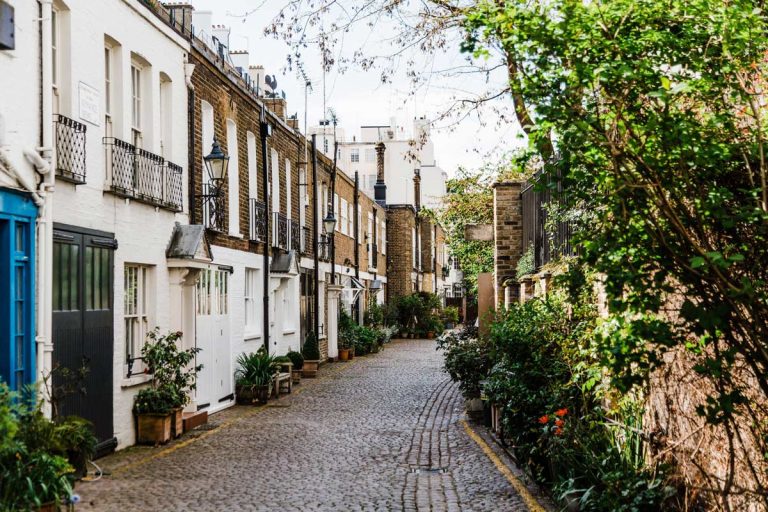What is Boris Johnson’s three-tier coronavirus lockdown plan?

2020 has been a year of incredible lows, as well as highs. Hundreds of thousands of people volunteered to help their neighbours and those in need, the weekly clap for carers brought communities together, and tens of millions complied with the government’s instructions to combat the spread of COVID-19. The first lockdown deprived millions of their basic liberties, and most were left in uncertainty when it came to obeying rules and understanding the global pandemic.
Now, as winter approaches, seemingly so does the rise of another COVID-19 wave. That’s why UK Prime Minister Boris Johnson addressed the House of Commons last evening on Monday 12 October from Downing Street. But what exactly did he explain in his new coronavirus briefing? What does the three-tier lockdown consist of? Here’s everything you need to know.
What is the three-tier lockdown system?
Boris Johnson announced a new three-tier system of restrictions designed to simplify what had become a confusing mix-match of targeted lockdowns across the UK. While the first tier basically duplicates the country’s most recent restrictions, the second tier restricts people from different households from socialising together, and the third—the one just imposed in Liverpool—shuts pubs, gyms and other nonessential businesses. Schools and offices, however, will be able to remain open.
“We don’t want to go back to another national lockdown,” Johnson declared in Parliament. But with coronavirus cases rising rapidly and more people now hospitalised with the virus than in March, he said it was time for more draconian restrictions.
The Prime Minister’s move to order the closure of pubs and bars in Liverpool angered local officials, who say they were cut out of the government’s deliberations, and laid bare how a second wave of infections is afflicting England’s North far more seriously than London or the rest of the South. In other words, the rigours of this latest campaign are being felt unevenly: 2.4 million people in Liverpool and its suburbs face tough new restrictions while for now, life in London goes on more or less ‘normally’.
Some health experts have already criticised the latest measures, saying they would neither stamp out the virus nor shield the economy from damage.
What are the restrictions in the three different tiers?
Areas with the lowest rates of infection will be placed in Tier One. They will face the basic national rules currently in force including: pubs, bars and restaurants will have to close at 10 p.m. and the rule of six (number of people who can meet up) applies both indoors and outdoors.
Areas in Tier Two face an extra level of restrictions, which includes: no mixing between different households indoors as well as the rule of six, which continues outdoors. Most areas of England that are already subject to local restrictions will be placed in Tier Two, although some places will face additional restrictions too.
The areas in Tier Two are Cheshire, Greater Manchester, Derbyshire, Lancashire, West Yorkshire, South Yorkshire, North East, Tees Valley, West Midlands, Leicester, Nottingham.
The highest level of restrictions are in Tier Three. Areas where transmission is rising most rapidly will be placed in this tier. The government will work with local councils on the additional measures for each area. Johnson said the Liverpool City Region (Liverpool, Knowsley, Sefton, Wirral, St Helens and Halton), which is currently the only area facing Tier Three restrictions, will have the following restrictions from Wednesday 14 October: pubs and bars will be closed (except where serving substantial meals), households cannot mix indoors or outdoors, gyms, leisure centres, betting shops and casinos will also close although shops, schools and universities will remain open.
The virus is roaring back across much of Europe, where countries are reporting daily cases comparable to those of the pandemic’s first peaks—and sometimes far beyond. Britain recorded over 15,000 cases on Saturday 10 October alone. France is weighing the possibility of local lockdowns as the country battles a second wave. In Spain, the federal government has used emergency powers to enforce a partial lockdown in Madrid, despite protests. Even Germany, much praised for its testing and contact-tracing capabilities, has reported a rise in infections this month.
Public trust in the government’s ability to lead the UK safely and effectively has wavered since mid-May, and it is understandably irritating to be told that we are all in this together, however, no matter how confusing the government’s decisions may be, we really are all in this together, on a global scale.
May we all steer clear of the top tier, but if not, we’ll be thinking about you today.




